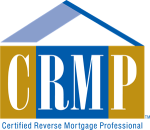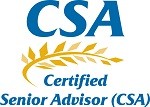What is a Reverse Mortgage?
Reverse Mortgage Calculator
See Your Quote
What is a Reverse Mortgage?
A reverse mortgage is a loan for homeowners age 62 and older that requires no monthly mortgage payments. The loan is repaid when the borrower passes away, leaves the home permanently or sells. Funds available are distributed as a lump sum, line of credit or structured monthly payments.
What it is:
- A loan against your home’s equity
- A loan with no required monthly mortgage payments
- A loan designed to meet the needs of retirees on fixed incomes
- Tax-free cash for virtually anything (social security income supplement, long-term care payment, house repairs or even vacations)
What it’s NOT:
- Selling your home to the bank
- Relinquishing title or ownership rights
- Right for everyone
The most common type of reverse mortgage is the Home Equity Conversion Mortgage, or HECM, a program the Federal Housing Administration created in 1988. While a traditional home mortgage requires that you make scheduled monthly payments over a specified term — usually 30 years — reverse mortgage interest is not paid by the borrower until the loan reaches maturity.
The bank does not own your home, You do.
With a reverse mortgage, you continue to own your home just as before. Like any mortgage, you will receive a monthly statement outlining all interest charges and balance information. You will continue to pay your property taxes and homeowners insurance. The only difference will be the absence of a coupon to return your monthly payment. Why? Because no payment is necessary.
At any time, you are welcome to repay the interest charges partially or in full without penalty.
You’re in the driver’s seat.
Some believe that once you get a reverse mortgage the bank will eat all the home’s equity, leaving your heirs with nothing but a mound of debt. This is dead Wrong.
While no one can predict your home’s appreciation, you can rest assured that the loan has no recourse other than the property and therefore no matter what property values do, the only recourse the lender has is the property on which you secured the loan. In other words, the lender can look to no other asset of yours and nothing belonging to any family member for repayment of the debt and so you can leave no debt to your estate or any family members that will not be settled with the house.
You can choose to make voluntary repayments of the mortgage interest in part or full without penalty. That’s right: if you want to, you can repay your reverse mortgage loan as you go or any time you choose. You can also deduct the interest just as you would a traditional home loan (but only as paid and subject to tax laws so consult your tax professional), and you can pay off the entire loan at any time with cash, by refinancing with another loan refinancing or selling the home – and never owe a prepayment penalty.
Qualifications
With Financial Assessment, HUD began underwriting borrower credit and income to see that reverse mortgage borrowers do have the willingness and ability to pay their taxes, insurance and have enough money to live every month. HUD requires borrowers to have a small residual income available to them after all property charges are considered. Residual income is the amount of money the borrower(s) have left each month after all debts and property charges are paid.
Debts are actual obligations such as installment and revolving charges and property charges are your taxes, insurance, association dues (if any) and a .14 cents per square foot allowance that HUD uses to cover all utilities, etc. (this per square foot charge may change in the future to actual cost).
Required HUD counseling
The Federal Housing Administration wants you to fully understand the reverse mortgage and requires all applicants to receive independent third-party counseling by phone or in person. Once you’ve received the counseling, you will receive a certificate of completion which is then signed and delivered to your lender of choice.
Important Questions & Considerations
How much can you get?
2019 Update: Reverse mortgages are available to all U.S. citizens and Permanent Residents age 62 or older with substantial equity in their home. The maximum loan amount you may qualify for is based on the youngest homeowner’s age, 2019 interest rates, and home value. Because this is a loan based on life expectancy, the amount of money you may borrow starts at roughly 45% of your home value at age 62 and increases slightly for older homeowners. If your home value is $726,525 or less, the federally insured-HECM will likely meet your needs. If your home value exceeds the national 2019 lending limit of $726,525 you will generally receive a larger benefit/payout on our new Jumbo Reverse Mortgages.
Is a reverse mortgage right for you?
Anyone who has desires or needs that cannot be met with their current income levels might be right for a reverse mortgage. It is a great tool to help you stay in the home you love or to simply enhance your retirement years.
Who is it NOT for?
Because there are typical costs associated with setting up a reverse mortgage, (appraisal and origination charges), the loans are not recommended for homeowners who plan to move within a few years — such as people who might require imminent care in a nursing home or inpatient facility — as they won’t be able to fully realize the benefits of the loan.
Can I prepay the loan without Penalty?
Yes! You can choose to pay the loan in full or in part at any time though without penalty. There is never a prepayment penalty with a reverse mortgage. Unless you repay your mortgage voluntarily as you go, your loan is not due until the last surviving spouse passes away or until that borrower no longer occupies the property as their primary residence. Your heirs will have ample time (up to 12 months) to complete a sale or refinance the transaction to repay the balance of the loan.
If your heirs choose not to act (that is, they do not move to repay the loan or sell the property), the reverse mortgage lender will have no choice but to foreclose on the home. If the sale of the property does not yield enough funds to pay off the balance of the loan, the government insurance that you would have paid for as part of closing your reverse mortgage loan will ensure that there is never any recourse against any other assets owned by you, your heirs or your estate. The lender will be reimbursed for any shortfall from the mortgage insurance fund and your estate and heirs will owe nothing.
What about income taxes?
The reverse mortgage is a loan just like any other loan. Therefore, loan funds received are not typically taxable on, but you must verify this for your circumstances with your tax professional.
Will it affect Social Security or Medicare?
Even though reverse mortgages do not affect public benefits such as Social Security and Medicare, the cash proceeds can impact eligibility for those who are receiving “needs-based” state or local assistance. This is not specific to a reverse mortgage, as any excess funds can change the qualifications on these types of programs.
What are the qualifications?
Summary:
-
A reverse mortgage is a loan against your home that requires no monthly mortgage payments.
-
You’ll need roughly 50% equity in your home to be eligible.
-
Since no monthly mortgage payments are required income and credit requirements are relaxed.
-
The loan can be repaid at any time voluntarily (without penalty) or by the sale of your home.
-
Any remaining equity belongs to your heirs but if the home is upside down there is no recourse to your family.
How can you get started?
Like any mortgage, you’ll benefit, but it pays to shop around. Compare offers from both banks and brokers alike and don’t be fooled by the common sales pitches that, “They’re all the same” or, “We service our own loans.”
If you’re not quite ready for this step, we recommend you request your proposal package, which will include our professional presentation including your personal loan details, our expert recommendations, and important pre-counseling documents. The fact of the matter is there is only one federally insured HECM. So, don’t settle for less money or higher interest charges.
We’re here to answer your questions! If you’d like to know what a reverse mortgage can do for you, call our experts Toll Free 562-881-9811 or email miguel@homecentralfinancial.com
For a free Reverse Mortgage consultation, please contact me by filling out the form below. I will get back with you promptly to schedule your free consultation. I look forward to speaking with you!
Thank You!
Your request has been submitted. We will get back to you promptly and look forward to speaking with you!










